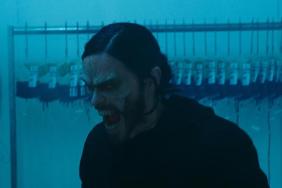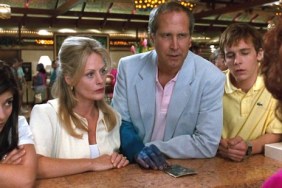
CraveOnline: When you’re dealing with key points in presidencies that we all know, like the Kennedy assassination and Watergate, how did you approach showing them sort of from behind, not from the perspective that we’ve already seen before?
Danny Strong: What you do is you try and approach it through the emotional reality of the characters in the movie. So you’re approaching it from the emotional reality of what the butlers are going through as they’re having to serve Jackie Kennedy after her husband has been assassinated. They’re having to serve Nixon as he’s dealing with the turmoil of Watergate or as Eisenhower is dealing with the pressure of Little Rock.
It’s, I think, a very unique perspective on history and I think an interesting way to cover those events because you’re covering it not from the point of the view of the principals as they’re grappling with the issues, but from their help. For me that was one of the inherently exciting concepts of the idea of doing a movie about a White House butler which was why I was so drawn to the article when I had literally no idea how I was going to approach the movie, just none.
The article itself was not a blueprint for a screenplay. It was just a very cool concept but I just thought I really need to try and figure this out because the idea of being able to be in the room with the presidents for pretty much any moment in U.S. history over the last 50 years that I want to do, I can do because these butlers were in the room. So A, what events do you pick? That was a real struggle. The first real breakthrough was figuring out that the movie was going to be the story of the civil rights movement. After that, the question is okay, how do you make a passive character like a butler an active protagonist in a story?
So why did you decide to montage through presidents Ford and Carter?
Yeah, so originally, we just skipped Ford because he was there for such a short period of time and Carter was a written out sequence, but the script just couldn’t contain it. It just was going on too long. It was so difficult enough to do the story with five presidents, but it was just one of those things where dramatically the movie couldn’t sustain one more president.
On another level too, with both Ford and Carter, was each sequence is basically structured around a civil rights event. In those two administrations, there just wasn’t really a seminal civil rights event that I could hang my hat on the structure in that sequence. So it was mostly an artistic decision to keep the story moving, but thematically, it was tough to tie them into the spine of the story.
In the case of Ford, he pretty much just maintained Nixon’s policies. There was no real movement in the civil rights movement during that period, and then in the case of Carter, he was so shackled by the recession, and there was a lot of white flight from urban cities. That was going on during that period which is kind of what I covered when I wrote that sequence, the Carter sequence, but it wasn’t dramatic enough to sustain a sequence that late in the movie.
That makes sense.
We could have made it work, but it was really much more of an artistic decision of, you know, this movie’s got to end. We had the script in front of us and Carter was too much.
When you were writing the scenes of the civil rights movement, was it difficult to write scenes of racism and hate crime?
No, I didn’t find it difficult at all. I found it emotional and moving. I was very moved. I’m very much inspired by the SNCC Kids and the Freedom Riders. I think they’re these true American heroes and the way that they faced off, they way that they chose to try and defeat racism in America, to try and change people’s hearts, not just fight for equal rights, I just find it deeply, deeply inspiring and felt really honored that I got to write their stories. One of our screenings that we did in the Screen Actors Guild, a woman came up to me and said, “I was a Freedom Rider and no one has ever thanked me before, so thank you.” It almost made literally the entire four years I’ve been on the project, I think that was probably the most special moment of it.
Something that got to me was when they had a white student who didn’t want to practice saying the N-word, but it was necessary for their movement.
Yeah, yeah. It’s too bad that we didn’t get to have a few more white characters because there were a number of white kids that were involved with the SNCC Kids and that were Freedom Riders. We actually did have a scene with a white Freedom Rider and through a series of events, the scene got way shortened and then I ended up playing the part because we lost the actor, the actor that was supposed to play the part. So that kind of shifted the dynamic of the scene a little bit. Yeah, there were a lot of white kids, male and female, that were very much a part of this movement. In fact, the woman that came up to me at the screening to say she was a Freedom Rider, she was white.
When the title controversy came up, did you go through a period of “What’s my movie going to be called?”
Yeah, I did and it was really frustrating, really frustrating. I was really concerned because we were I think six weeks out from our release and all of a sudden there’s a possibility that the entire title may change. At one point the MPAA said we couldn’t use the word “butler” in the title which made no sense to me whatsoever. I just was really concerned that if we can’t even use the word “butler” in the title, the film that’s been advertised for the last few weeks, there had almost been a month of light advertising but definitely advertising, and people are going to be confused and not know that this is that movie and that it’s going to hurt the release of the movie. So I was very concerned.
I was disappointed that we didn’t get to keep the actual title The Butler because at the end of the day, I don’t think it’s fair that we didn’t get to keep that title. That was the title I came up with four years ago because to me that’s the name of the movie, but I think Lee Daniels’ The Butler is the next best alternative to any of the other alternatives because it’s still essentially the title The Butler. It doesn’t really change it.
It seems like Lee Daniels’ The Butler was the obvious solution, so was Harvey Weinstein a genius generating PR over this until they finally announced this title?
I would argue that yes, he took a negative situation and spun it into a positive by getting as much press out of it as he did. So is Harvey Weinstein a genius? I think the answer to that question is: uh, yes. But I don’t think it was something that was masterminded up front. I think it was a big annoyance for The Weinstein Company as well and very frustrating, the entire situation. Harvey being Harvey, he was able to take some lemons and make a lot of lemonade.







